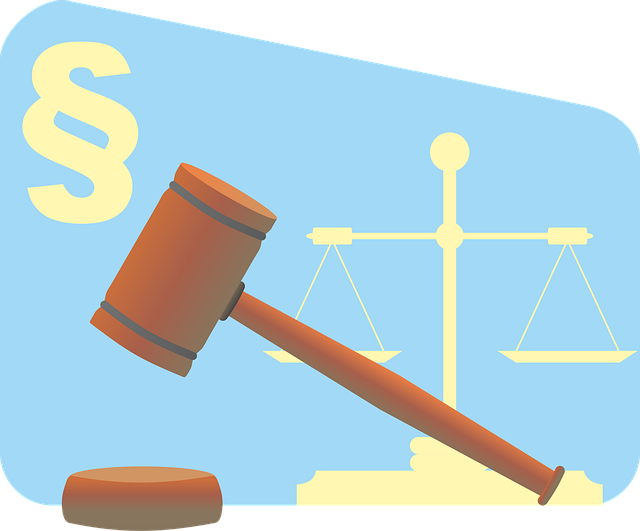Antitrust laws are vital for ensuring fair market competition and consumer protection, with criminal defense cases relying on Constitutional Protections for fairness. Violations like price fixing and bid rigging can harm consumers, making complex legal strategies essential for defense. Skilled attorneys navigate these protections, often leading to industry changes. Key cases like United States v. Standard Oil Co. and International Paper Co. v. United States have shaped antitrust landscapes, with historical precedents offering insights into effective defenses guided by constitutional rights.
“Uncovering the intricate world of antitrust violations, this article delves into the legal framework and its real-world implications. We explore the purpose of antitrust laws, shedding light on how they maintain fair competition in markets. From common scenarios to historical case studies, we analyze notable trials, offering insights into their impact. Furthermore, understanding constitutional protections in criminal defense is crucial; we examine these safeguards for individuals facing antitrust charges. Legal experts play a pivotal role in navigating such litigation, ensuring fairness and justice.”
- Understanding Antitrust Laws and Their Purpose
- Common Antitrust Violation Cases: Examples and Scenarios
- Constitutional Protections for Criminal Defense in Antitrust Cases
- The Role of Legal Experts in Navigating Antitrust Litigation
- Historical Case Studies: Notable Antitrust Violation Trials
Understanding Antitrust Laws and Their Purpose
Antitrust laws are designed to promote fair competition in the marketplace and protect consumers from anti-competitive practices. These laws aim to prevent businesses from engaging in activities that restrict trade, such as price-fixing, market division, and monopolistic behavior. Understanding these regulations is crucial for both businesses and legal professionals, especially in the context of white collar defense strategies.
The purpose of antitrust legislation is to ensure a level playing field for all companies, fostering innovation and preventing the rise of monopolies. By upholding these laws, courts can provide Constitutional protections in criminal defense cases, ensuring that businesses are held accountable without unduly punishing them. In some instances, this might lead to a complete dismissal of all charges, especially when companies cooperate with authorities and exhibit remorseful conduct. The ability to access jury trials is also a significant aspect of antitrust litigation, allowing for transparency and an unbiased decision-making process.
Common Antitrust Violation Cases: Examples and Scenarios
Antitrust violations can take various forms, each with its own unique set of consequences. Common examples include price fixing, where businesses collude to manipulate market prices, and bid rigging, where companies conspire to control bidding processes in public projects. For instance, a group of manufacturers might agree not to compete on pricing, leading to higher costs for consumers. In another scenario, construction firms could fix bids for government contracts, ensuring each wins the tender without regard for the best value for money.
These cases often involve complex legal strategies in high-stakes white collar and economic crimes defense. The Constitutional Protections in Criminal Defense are crucial here, as they safeguard individuals from unfair prosecution. Skilled attorneys navigate these challenges, ensuring their clients receive a fair trial. In many situations, successful defenses have led to significant changes in industry practices, reflecting the importance of antitrust laws in fostering fair competition and protecting consumers.
Constitutional Protections for Criminal Defense in Antitrust Cases
In antitrust violation cases, individuals facing criminal charges under laws like the Sherman Act or Clayton Act are entitled to specific Constitutional protections in their defense. These protections are crucial for ensuring fairness and due process, especially in what are often considered high-stakes cases involving complex business dealings. The right to a fair trial, guaranteed by the Fifth Amendment, is paramount, providing defendants with the opportunity to confront accusers and present evidence in their defense.
Additionally, the Sixth Amendment further strengthens the criminal defendant’s position by securing the right to an attorney, enabling them to navigate the intricacies of antitrust laws and assemble a robust white-collar defense strategy. These protections are vital in mitigating potential consequences for those embroiled in such cases, ensuring that justice is served while upholding the respective business interests and rights of all parties involved.
The Role of Legal Experts in Navigating Antitrust Litigation
In the intricate world of antitrust litigation, legal experts play a pivotal role in guiding clients through complex legal landscapes. These professionals are well-versed in navigating the intricacies of competition laws and regulations, ensuring that businesses and individuals accused of antitrust violations receive robust defense strategies. With their in-depth knowledge, they can help uncover crucial facts and interpret relevant statutes to build winning challenging defense verdicts. By meticulously examining market dynamics and structural issues, legal experts can expose loopholes or misinterpretations that may lead to the dismissal of charges or significantly reduce penalties.
Furthermore, these legal minds must stay abreast of judicial precedents and evolving case law related to antitrust violations. Understanding how courts have applied Constitutional Protections in Criminal Defense is essential for crafting effective arguments. This knowledge is particularly valuable when representing philanthropic and political communities that may face scrutiny due to their influence and impact on the market. By employing strategic legal tactics, they can help their clients avoid indictment or excessive sanctions, thereby fostering a fair and balanced legal system that protects the rights of all stakeholders within the business sphere.
Historical Case Studies: Notable Antitrust Violation Trials
Antitrust violation cases have shaped legal landscapes through historical case studies that offer valuable lessons in balancing market competition and consumer protection. One of the most famous examples is United States v. Standard Oil Co. (1911), where the Supreme Court, guided by constitutional protections in criminal defense, broke up a monopolistic oil empire. This landmark decision set a precedent for future cases, demonstrating the power of antitrust laws to preserve fair market competition.
Another notable trial is International Paper Co. v. United States (1957), which resulted in a complete dismissal of all charges against the company. Despite this favorable outcome for the defendant, it highlighted the importance of antitrust enforcement in preventing corporate abuse. These case studies not only showcase the legal battles but also the varying strategies employed by both prosecution and defense, contributing to the evolution of general criminal defense practices within antitrust law.
Antitrust violation cases, as illustrated by historical case studies and modern examples, underscore the importance of understanding both antitrust laws and their broader implications. Navigating these complex legal landscapes requires the expertise of seasoned professionals who can guide individuals and corporations through the intricacies of competition law. In particular, recognizing the existence of constitutional protections for criminal defense in antitrust cases is paramount, ensuring fairness and due process throughout the litigation process. Legal experts play a crucial role in unraveling seemingly intricate web of antitrust violations, ultimately fostering a level playing field for all participants in the marketplace.






